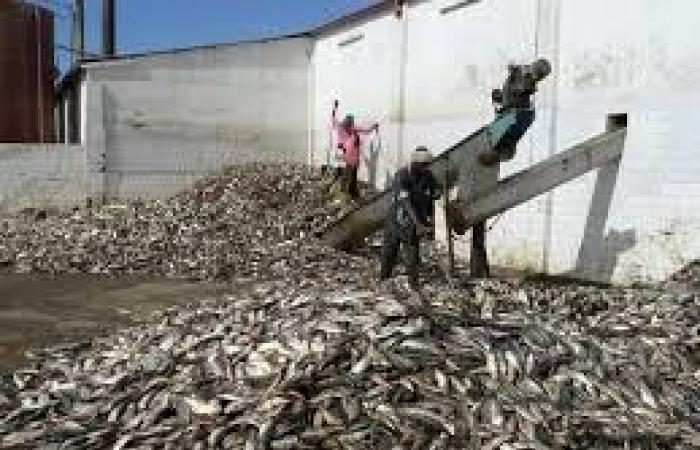In Cayar, transformative women have undergone the effects of the scarcity of fishery resources for years. But their activity is increasingly threatened by the installation of the “touba marine” fish flour factory. They rush in the stretchers.
Tables whose pieces of wood are holes seek occupants. An empty space, a desert that crumbles under the assaults of solar rays … In Cayar, it is fear and anxiety in transformative women. Maty Ndao experienced the happiness of the marketing of processed products. Nostalgic for her life before, the president of the Cayar transformation site, seated next to two comrades under a mat, three empty basins under the eyes, saw confined in her happy memories and fixes the horizon by telling these days. Yes, there is the scarcity of fish but there is of course competition from fish flour factories. “Since the installation of the Barna factory (which has become Touba Marine Protein in 2018), we can no longer have fish. Even for the waste that we bought in factories, we are now undergoing ‘Barna’ competition which has more means than us. It is done with the complicity of certain fishermen who go to sea only on behalf of Barna who pays double the normal price ”, whining Mme NDAO, face engraved with wrinkles.
The town of Cayar, located in the department of Thiès, is located on the southern part of the Grande Côte Senegalese, 58 km northeast of Dakar. On their site where the marine embrun and the scent of rotten fish make breathing delicate, the activity of transformators turns idling. Except for Ndèye Diene which puts on the torment of dozens of juvenile species – which fight so as not to die in a basket – in order to make ‘Keccax’ (smoked fish). Its frail depigmented figure accuses the counterpouss of contact with iodized salt.
Sitting under a craft tent pierced by the sun’s rays, the quinqua is justified: “I have only small species as I no longer see sardinelle (Yaboy) and the waste which is directly purchased by the Fish Flour factory. Today, this work will allow me to win 1000 to 2000 FCFA. But, I can stay days without activity ”.
Activity of more than 300 women threatened
The desolation is almost tattooed on the faces in this space for grouping women who adjoins the sea. The canvases and the nets covering the dozens of stalls display a cleanliness which illustrates a reality: the times are hard. “We are 325 women transformators to work here but we no longer see any fish to transform. 80% of us are unemployed, ”alerts Maty Ndao who says he has orders for the sub-region, especially in Burkina Faso. But today she is condemned to contemplate the sea and its movements, in search of a flying canoe to their aid.
In this commune, transformative women take the lead in both hands. “The factories kill us slowly. Their competition is tough, untenable. I cannot buy a Sardinelle box at 40,000 FCFA, ”explains Ndèye Fatou Ndiaye, death at heart. Now it’s day -to -day life for these ladies. A daily life that is heckled by their old sellers who no longer hide to haggle directly with the managers of the factories of fish flour. “I only go to sea for fish flour factories, because I can sell them a Sardinelle box at 42,000 FCFA,” rejoices Mame Mor Tine, fisherman from Joal and in the Cayar campaign. In echo, the Mareyeur Badou Seck adds: “The factories pay well. Transforming women are in the haggling, factories come out of money. Before, I sold my fish to the factories that make a cool price and the waste was thrown. Now I sell waste at flour factories. So I win doubling, ”he says. To the chagrin of women transformatives.
Babacar Gueye Diop








